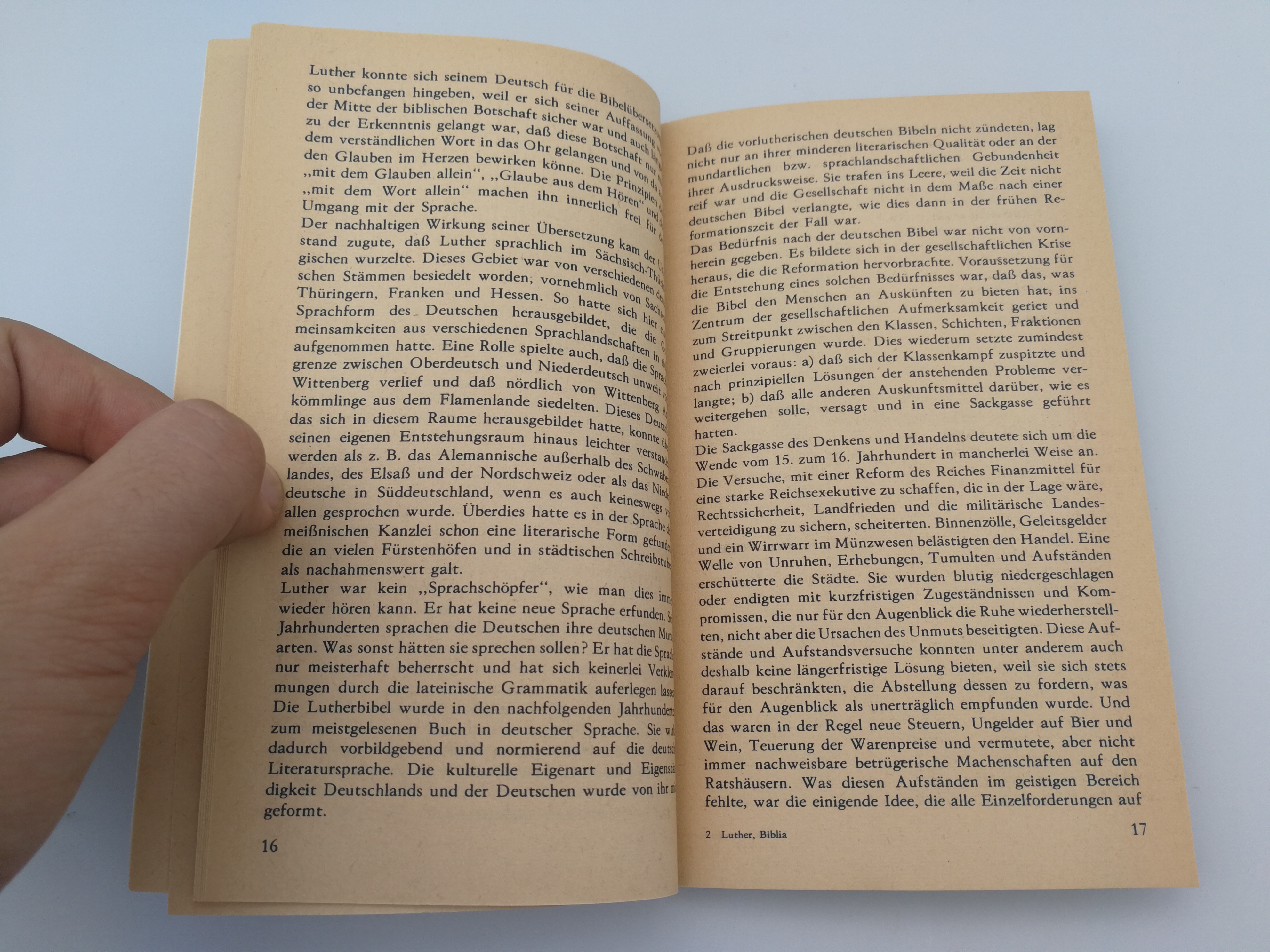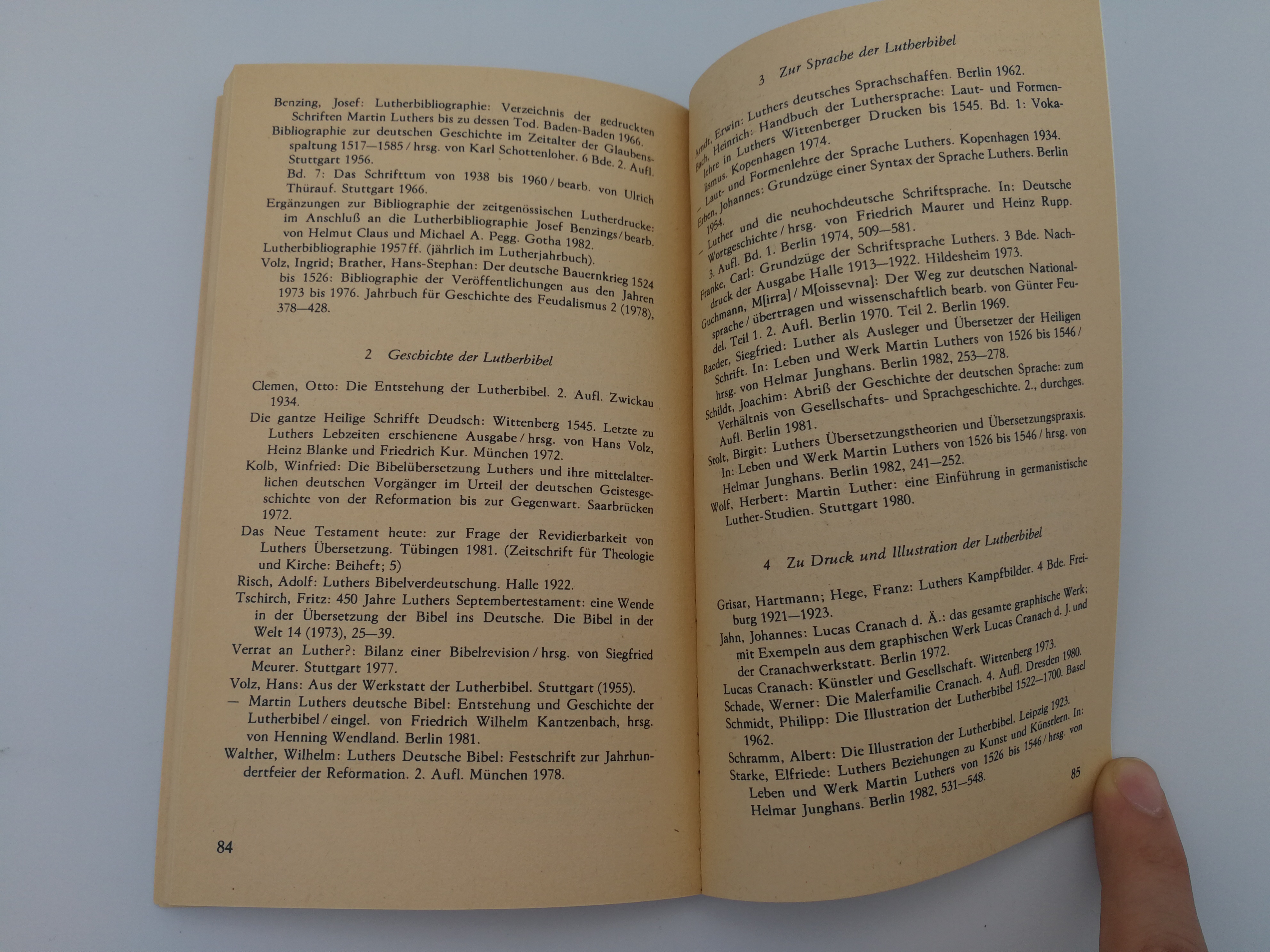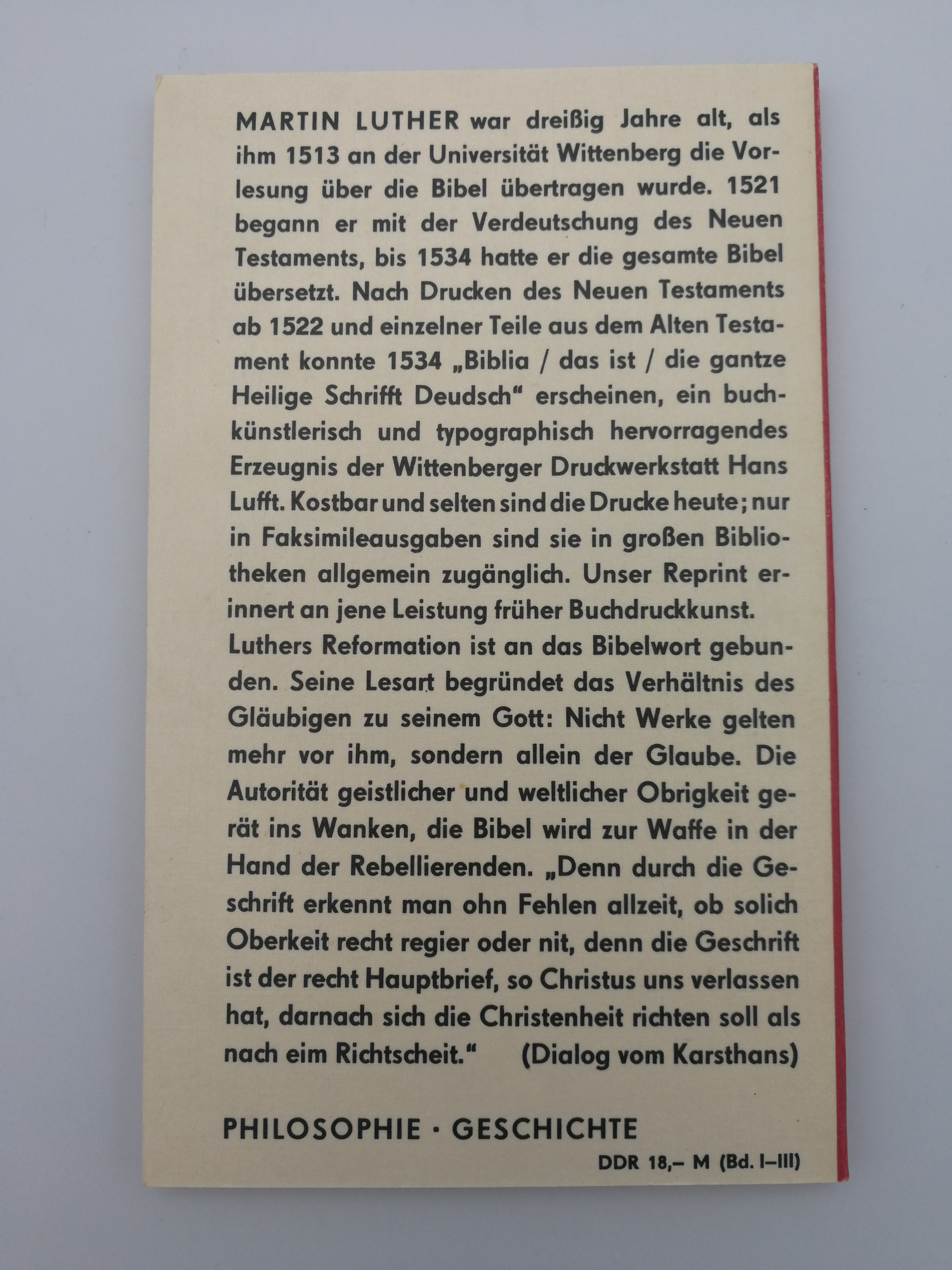Description
Zu Martin Luther: Biblia
By Brendler, Endermann, Kratzsch, Fühmann
Overview
"Zu Martin Luther: Biblia" offers an insightful look into the significance of Martin Luther's Bible translation and its impact on German-speaking Christians. This compilation of essays provides a scholarly examination of the Luther Bible, its translation process, and the printing history from 1522 to 1546. The book is an excellent resource for those interested in both the theological and historical aspects of the Luther Bible, shedding light on Luther’s contributions to Christian thought and the Reformation.
Product Features
- Format: Paperback
- Pages: 86
- Language: German (Deutsch)
- Published by: Reclam, 1983
- Dimensions: Standard paperback size
Interesting Facts
- Gerhard Brendler explores Martin Luther's relationship with the Bible, highlighting his groundbreaking work in translating sacred texts into German.
- Heinz Endermann focuses on Luther's Bible translation process, emphasizing the linguistic and theological innovations of the era.
- Konrad Kratzsch dives into the printing history of the Luther Bible from 1522 to 1546, offering a deeper understanding of how the Bible reached the German-speaking world.
- Franz Fühmann shares his personal reflections in "Meine Bibel; Erfahrungen," contributing a more intimate, experiential account of Luther's Bible.
- Martin Luther's Bible was the first complete German Bible based on Hebrew and Greek sources, a monumental achievement in religious and linguistic history.
Publishers
Publisher: Philipp Reclam Verlag, 1983
We value your feedback! Share your experience with this product to help others make informed decisions. Your review is important to us!
Hashtags:
#MartinLuther #LutherBible #Reformation #GermanBibleTranslation #PhilippReclamVerlag #ChristianHistory #Lutheran #FaithAndHistory #ReformationStudies #LutheranTheology #GermanLanguageBooks
German Translation:
Übersicht
"Zu Martin Luther: Biblia" bietet einen aufschlussreichen Blick auf die Bedeutung von Martin Luthers Bibelübersetzung und ihren Einfluss auf deutschsprachige Christen. Diese Sammlung von Essays bietet eine wissenschaftliche Untersuchung der Lutherbibel, des Übersetzungsprozesses und der Druckgeschichte von 1522 bis 1546. Das Buch ist eine ausgezeichnete Ressource für alle, die an den theologischen und historischen Aspekten der Lutherbibel interessiert sind.
Interessante Fakten
- Gerhard Brendler untersucht Martin Luthers Beziehung zur Bibel und hebt seine bahnbrechende Arbeit bei der Übersetzung heiliger Texte ins Deutsche hervor.
- Heinz Endermann konzentriert sich auf den Übersetzungsprozess von Luthers Bibel und betont die sprachlichen und theologischen Innovationen der damaligen Zeit.
- Konrad Kratzsch beschäftigt sich mit der Druckgeschichte der Lutherbibel von 1522 bis 1546 und bietet ein tieferes Verständnis dafür, wie die Bibel die deutschsprachige Welt erreichte.
- Franz Fühmann teilt in "Meine Bibel; Erfahrungen" seine persönlichen Reflexionen und liefert einen intimeren, erfahrungsorientierten Bericht über Luthers Bibel.
- Die Lutherbibel war die erste vollständige deutsche Bibel, die auf hebräischen und griechischen Quellen basierte – ein monumentales Ereignis in der religiösen und sprachlichen Geschichte.
Hashtags
#MartinLuther #LutherBibel #Reformation #DeutscheBibelübersetzung #PhilippReclamVerlag #ChristlicheGeschichte #Lutheraner #GlaubeUndGeschichte #Reformationsstudien #LutherischeTheologie #DeutscheBücher































